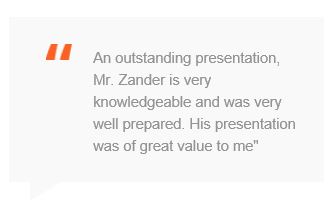
Over the past 4 months, we’ve discussed and summarized The Who, The What and The Why, this month we will delve into the question that is first and foremost in most people’s minds as it relates to claiming Social Security which is WHEN! While speaking last week at the Dallas CPA Convergence Conference, my simple response to the When is “Tell Me Your Check Out Date” and I’ll tell you when to file. Since we don’t know, nor would we really want to know, all we can do is estimate using life expectancy tables, current health status and family history.
Not knowing one’s check out date, how do I know when to file for benefits?
It’s really a combination of a number of issues and resources. Here is just a small sample of questions that need to be discussed;
- Do you plan to continue working, if so for how long?
- What are your spouses plans as it relates to working?
- Is part time work or what I call phased retirement an option?
- How do you anticipate spending your time, once you retire?
- Do you NEED to claim benefits or do you just WANT to? What’s your rational for claiming?
- Have you run a Balance Sheet, Income Statement and Financial Budget for your retirement income needs? (See last month’s newsletter Needs – Wants – Wishes worksheet)
- What are your spouses needs in the event of your demise?
- Are you and your spouses parents still alive and how old are they? If deceased at what age did they die and from what causes?
No two people are alike, thus it is imperative that the claiming benefits is not a knee jerk reaction to retiring, turning 62 or worse yet based upon hearsay, rumors, or family or acquaintance advice! I always ask the question when speaking at CPA Conferences “Do you know of anyone who claimed benefits based upon the reasoning of getting the money before it’s gone?” Invariably almost every hand goes up. When almost 40% of individuals still claim at age 62 it leads me to believe there is a pandemic of ill advised people making irrational decisions based upon faulty beliefs, biases or prejudices!
The 7 PRIMARY Considerations before Claiming
- If you claim early there is a penalty of as much as 30% that will last not only your lifetime but also your spouses lifetime as well!
- The difference between claiming at 62 vs 70 is DOUBLE! You worked 40 years to get $x does it make sense to wait 8 more years to get $x times 2? On average the breakeven between claiming at 62 vs 70 is 10 years, but once one reaches age 80 there is a dramatic difference in monthly checks for the rest of their I would say on average cumulative lifetime difference in benefits, would be around $300,000 in favor of waiting.
- If you claim prior to your FRA (Full Retirement Age) and are still working you are subject to the Earning Test (lose $1 in benefits for every $2 you earn above $22,320) which you have to pay back. Rule of thumb: If your going to work, don’t claim!
- Have you considered a HEDGING STRATEGY, where having the higher earning spouse delay until age 70, but having the lower earning spouse claim early?
- Is it possible to create and income bridge between current age and delaying until 70 using a combination of Spousal Claiming, IRA withdrawals or part time work?
- Will either you or your spouse be claiming a pension from a job where you did not pay FICA taxes? If so, you may be subject to the WEP and GPO.
- Did you have a prior marriage that ended in Divorce or a Death? Both of these occurrences may have Social Security claiming implications!
It’s Counter Intuitive
In counseling a financial advisor and her clients this week, they mentioned their desire to take Social Security benefits early since they desire to leave more of their financial assets to their children. I mentioned that by delaying Social Security benefits on the higher earning spouse until 70 and creating a bridge between 63 and 70 using the lower earning spouses benefits and drawing down Qualified Assets while they were in a lower tax bracket they might actually leave more money to their children! The reason being that the higher Social Security benefits at age 70 for the rest of their lives would mean less withdrawals / less stress on their other financial assets!
An Educated Guess
We’re all unique, with different situations and time frames, thus it is imperative that we look at EVERYTHING and make the right decision based upon all of the above!
Try to Keep Cool this summer – Always here for you!


